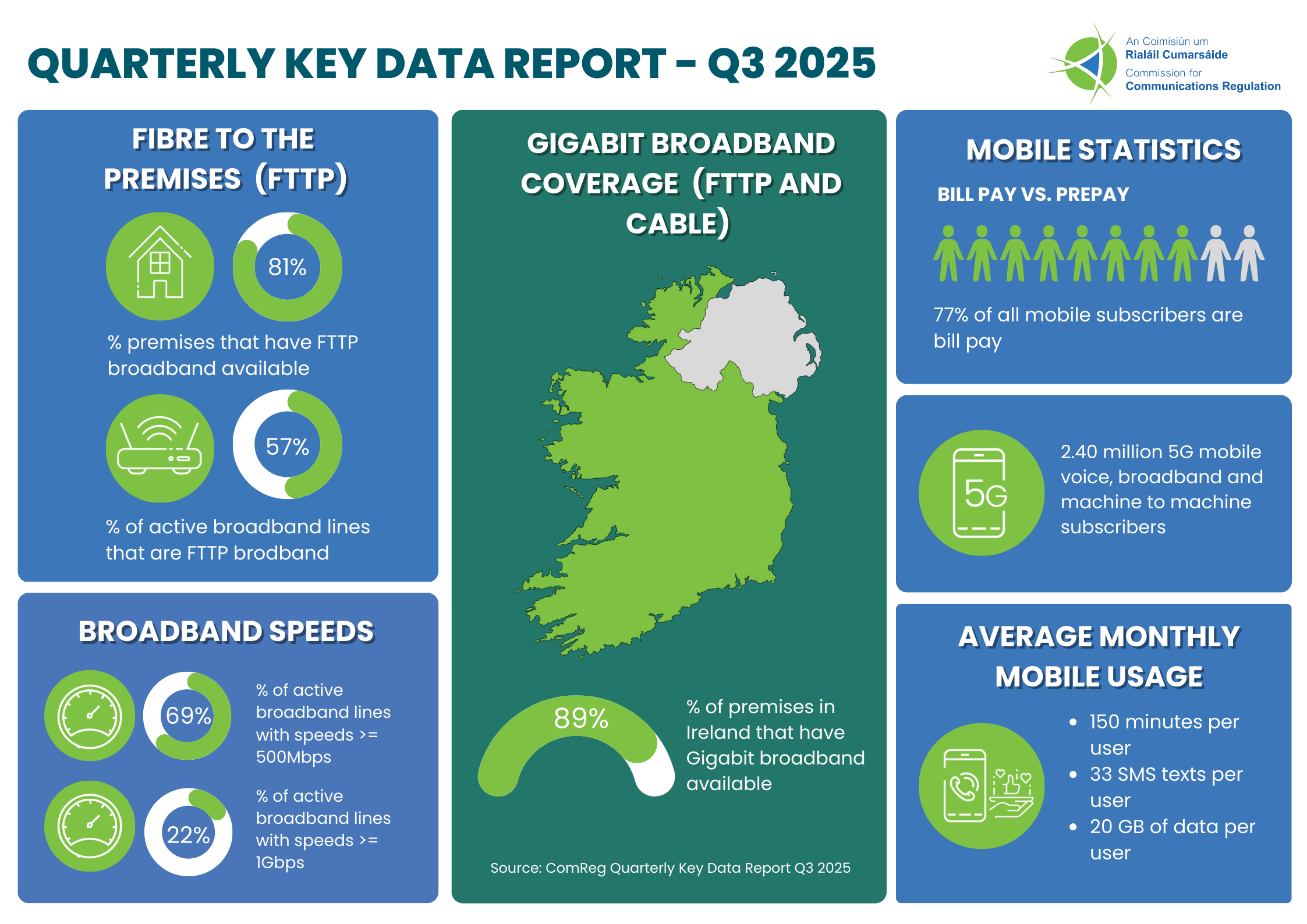
ComReg today published the results of a survey, the first of its kind in Ireland, investigating Irish people’s experience and perceptions of their mobile phone service. The survey involved over 2,800 face-to-face interviews.
To ensure that the experiences of those in rural areas were captured, the survey sampled a higher percentage of those living in less densely populated parts of the country. As Gerry Fahy, Chairperson of ComReg, explained, “we surveyed one in every 100 residents in the most rural parts of the country. This methodology allowed us to put a magnifying glass on rural areas where ComReg is aware that service issues may be more common.”
- The survey confirmed that mobile phones are increasingly used for much more than making and receiving calls and messages – they are now portals into the digital world.
- While voice and text are still the most popular services on mobile phones, three quarters of people also use data, with browsing the internet, using social media, streaming music and TV applications the most common online
- The take-up of data services is lower in rural areas, and the use of messaging applications such as WhatsApp is also more prevalent in urban parts of the
- The most frequent place to use a mobile phone for making or receiving calls or SMS messages is in the
Mr Fahy also said that “mobile phones are now personal communications devices, and are increasingly the device of choice, even at home. Our expectations of, and reliance upon, mobile phone coverage has increased significantly.”
In relation to consumers’ experience of mobile phones, the survey found that:
- Most consumers across the country indicated satisfaction with their current mobile service. However, 29% of respondents experience service issues for calls or SMS throughout their home. This number rises to 43% percent in the most rural
- Specific issues include the quality of service deteriorating when indoors, a deterioration in the quality of reception during a call, the inability to make calls and calls being
- Consumers are generally slow to change operator. However, many of those who do switch report coverage improvements. This is particularly the case in rural
Mr Fahy stated that “ComReg recommends that consumers keep an eye on the market and be prepared to switch operator for a service that better meets their coverage and service requirements. In particular, we direct consumers to our newly updated compare tool on www.comreg.ie/compare.”
Mr Fahy went on to say that ComReg is a participant in the Mobile Phone and Broadband Taskforce and is committed to implementing a number of projects which are designed to improve the service experience of mobile phone users.
- ComReg is in the process of developing a “coverage tool” to help mobile phone users understand where in the country they should expect to get coverage, depending on their service provider and other factors.
- ComReg has requested that Industry publish answers to a set of frequency asked consumer questions (FAQs) developed by ComReg about handset ownership, unlocking and costs. These FAQs will greatly improve consumers’ information when purchasing
- In June 2017, ComReg published its Decision on new minimum requirements for Service Providers’ Codes of Practice for complaint handling. Service Providers must implement these by 1 January 2018, and the new measures will greatly assist consumers (including businesses) if they need to complain to their service
The full report can be found here.
Consumer information is available at www.comreg.ie/consumer-information. ComReg’s value comparison calculator is available at on www.comreg.ie/compare.





